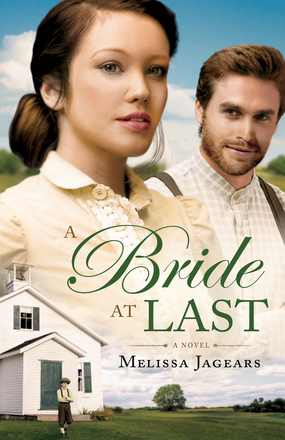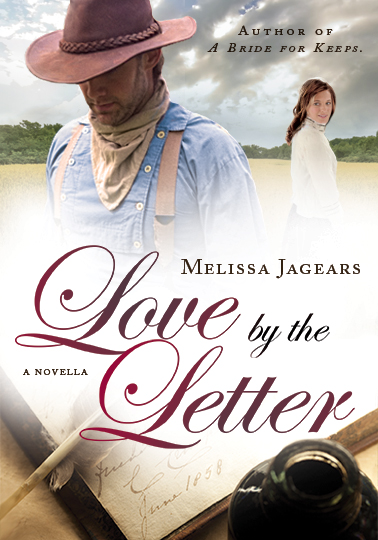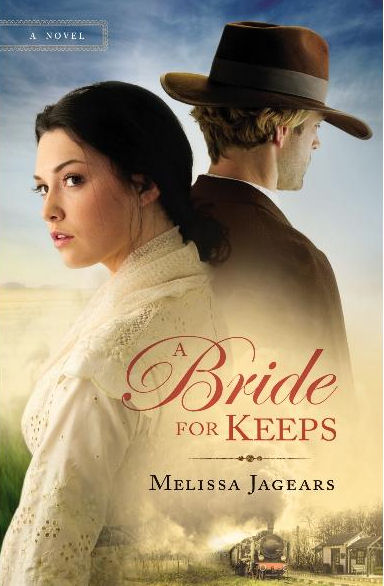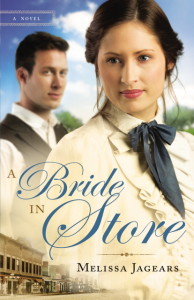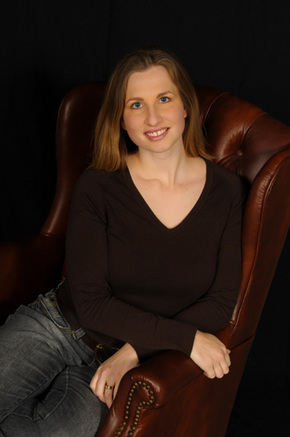
Driftwood Tides is set at the Outer Banks in North Carolina, bringing another time and place to life.
While writing Driftwood Tides, I sat on the beach, closed my eyes and heard what I would have guessed to be a sprinkler system rapidly firing. I knew it couldn't be, but that's what it sounded like. It was actually the sound of chirping cicadas and the sprinkler system description was something I was able to use to describe that sound in the book.
--author Gina Holmes

Holton Creary ~ An ordinary day ... jolting news. What do you do with that? In an instant, life changes. This morning started out so easy. Would we have lingered longer, not knowing this would be our last smile, our last touch?
Libby Slater is going beachside for two summer months ~ only, her life is about to change ... Her fiancé is sure it is too. Living above an art studio as an intern without monetary pay, she may find there is more benefit than "experience on her resumé." At least, that is what she told him she was applying for ~ so much more....
I like the strength of the characters building upon weaknesses we all have in one form or another ~ unable to get out from under them without the Lord's help. Determination to become more than turmoil and what-ifs could produce, this story is very well-written with the foibles of man and the truth that no man is an island. We need each other. I like the steadfastness of Tess as she continues to give of herself regardless of return. Her artistic features blossom amid pain and rejection, not letting it mar what she sees or hamper her creativity. I would say she is the strong heroic person in this story. Accepting Libby, treating Holt with respect and honor, not giving in to be coerced beyond who she is. These people live ~ they're alive with daily life as it really is. How long can we remain influenced by the past, not recognizing the merits of today, and relishing a hope for tomorrow?
***Thank you to author Gina Holmes and Tyndale House Publishers for sending me a copy of Driftwood Tides for review. This review was written in my own words. No other compensation was received.***
![IMG_1293[1]](http://www.ginaholmes.com/wp-content/uploads/2012/03/IMG_12931-199x300.jpg) Gina Holmes is the founder of Novel Rocket, regularly named as one of Writers Digest’s best websites for writers. She works too hard, laughs too loud, and longs to see others heal from
their past and discover their God-given purpose. To learn more about
her, visit her website.
Gina Holmes is the founder of Novel Rocket, regularly named as one of Writers Digest’s best websites for writers. She works too hard, laughs too loud, and longs to see others heal from
their past and discover their God-given purpose. To learn more about
her, visit her website.He made himself an ocean until something unexpected washed ashore.
When Holton lost his wife, Adele, in a freak accident, he shut himself off from the world, living a life of seclusion, making driftwood sculptures and drowning his pain in gin. Until twenty-three-year-old Libby knocks on his door, asking for a job and claiming to be a friend of his late wife. When he discovers Libby is actually his late wife’s illegitimate daughter, given up for adoption without his knowledge, his life is turned upside down as he struggles to accept that the wife he’d given saint status to was not the woman he thought he knew.
Together Holton and Libby form an unlikely bond as the two struggle to learn the identity of Libby’s father and the truth about Adele, themselves, and each other.
Enjoy this excerpt from Gina Holmes' Driftwood Tides ~ Prologue & Chapter 1
"See how very much our Father loves us,
for he calls us his children, and that is what we are!"
1 JOHN 3:1a
PROLOGUE
The pillow pushed against Holton Creary’s nose, forcing him to turn for air. His eyes fluttered, opening just enough to take in the first blush of morning light. Realizing he had at least another solid hour to sleep, he smiled in contentment. Flipping toward his wife's side of the bed, he reached out to pull her close. Molding her warm, familiar body against his was a ritual as old as their marriage. But instead of coming to rest on her hip, his hand thudded against the mattress, jolting him fully awake. Lifting his head, he listened for her pattering about, but he heard only Rufus snoring from his spot on the floor.
The small house was full of the smell of freshly brewed coffee . . . but no sign of her. He peered out the front window, not surprised to see her standing with her back to him, watching the sunrise from the beach they called a front yard. She was wearing her nightgown, his old cardigan serving as her bathrobe. The breeze made the nightgown cling to her legs, which filled him with a momentary possessiveness. If any man should happen to walk by at the moment, the sight of her would stop him in his tracks. That was the downside of marrying a beautiful woman—Holton wasn’t the only man with appreciative eyes.
He climbed down the stairs leading to the beach and quietly sidled behind her. He wrapped his arms around her waist, causing her to jump and turn her head in surprise. A warm smile replaced her startled expression. “You’re up early,” she said.
“I missed you.” He rested his chin on her shoulder, catching a whiff of the perfume left over from the day before.
“Did the cicadas wake you?” she asked.
It was only then that he registered the sound of their screeching. It reminded him of a sprinkler system on overdrive. “Actually, I didn’t even hear them until you mentioned it.”
She twisted her mouth back at him. “In your own world, as usual.” The lightness of her tone told him she wasn’t picking a fight.
“Right now, I’m all about yours.” He hugged her waist tighter.
“I’ll never get used to this,” she said with a contented sigh.
Looking out at the sunrise with its layered gauzy pinks and purples, he knew just what she meant. “I forgot how beautiful the beach could be this time of morning.”
She spun around to face him. Her light-brown eyes glinted, tiny lines forming around the corners, followed by a smile. “Not just the view, I mean this whole place. You. The gallery. My life is like a dream.”
He cleared his throat before his voice could crack from emotion. “I thought you’d be mad at me for coming home so late last night.”
She turned to face the water again, reaching back for his hands. She wrapped them around her waist and leaned her back against him. “What good does it do? I’d have better luck punishing Rufus for drooling. I married an artist. It’s not fair getting mad at you for being the person I fell in love with.”
He ran her golden hair between his fingers. She was more than he deserved. So much more.
“Is it almost finished?” she asked. “Tell me it’s about done.”
He had spent nearly every waking moment, when they weren’t at the gallery, working on the stallion. Until now, she'd always spoken with a twinge of contempt whenever mentioning the piece, like a jealous lover. He knew he was leaving her alone far too much, but tomorrow or the next day it would be finished, and he’d make it up to her.
He kissed the top of her head. “It would have been done yesterday if I hadn’t been working on a certain brake issue.”
Looking over her shoulder at him, her eyes brightened. “You finally fixed them? No more screeching?”
“Not a peep.”
She turned back around in his arms and kissed his lips in gratitude.
“If I'd known that was waiting for me, I’d have taken care of it last week.”
“If you would have taken care of it last week, you’d be getting more than a kiss.”
He wriggled his eyebrows. “What can I get for adding an oil change?”
She slapped him playfully. “I better get ready.”
He glanced at his watch. “We’ve got plenty of time. What’s the hurry?”
“I was tired last night. I didn’t sweep or count the drawer.”
Guilt niggled at him. She had slowly taken over all the chores at the gallery that they’d agreed would be his. “I’ll run over and do it. You take your time and enjoy the morning.”
She laid her soft hand on his cheek, shielding it from the ocean breeze. “Not a chance. I want my husband back. I’ve got the gallery. You finish the stallion before I decide to set it on fire.”
“Deal,” he said.
###
It wasn’t an hour after Holton had handed her a travel mug of coffee and kissed her through the open car window when a squad car pulled out front of the house. The moment the policeman took off his hat and slid it under his arm, Holton knew.
After the man informed him Adele had been killed on impact when her car hit another at nearly sixty miles an hour, he said nothing. He was so stunned that his heart froze, unable to respond. Before that could change, he drove to the nearest liquor store and bought the biggest bottle of gin he could find.
Chapter 1
The lab had either made a big mistake and none of the results could be trusted, or else her world was about to be turned upside down. It was this Libby Slater thought of as she rushed from the stationery store, bag in hand.
The day had started out pleasant enough. The weather was beautiful, she’d met Rob for lunch, and not one of her clients had dropped a shoe box of receipts on her desk, assuming she’d sort it all out. But then, in the middle of her ordinary day, she’d logged on to her online health account to check the results from Rob’s and her premarital genetic counseling workup and gotten the shock of a lifetime.
The results should put her mind at ease, the doctor’s note read, but they did just the opposite. Although her fiancé was a carrier for cystic fibrosis, the disease that had taken the life of his younger sister, Libby was not. This was good news, because apparently it took two to tango. Other than that, all the results were a very positive negative. She would have been relieved if it weren’t for her blood type, listed innocently along with the rest of the results: A positive, which wasn’t positive at all. Both of her parents had O blood types, and two Os couldn’t produce an A child. It had to be an error. Had to.
The screech of sirens ripped Libby from her thoughts. Hunching, she slapped her free hand over her ear and waited for the pulsating red lights to pass. Two city blocks later, her ears were still ringing.
A bus with a giant cell phone carrier ad scrolled across it, dotted by finger-smudged windows, screeched to a halt in front of an empty bench. Pneumatic doors hissed open and passengers hurried off so fast they were almost a blur. After the last passenger filed past, she stepped off the curb to cross the street.
She assumed the approaching cab would stop, or at least not accelerate, but she assumed wrong. Jumping back onto the concrete, she felt a whoosh of exhaust part her long hair. In lieu of an apology, the driver screamed as he flew by. Although she couldn’t decipher what he said, the vulgar hand gesture he thrust out the window gave her enough of a clue.
Soon her heartbeat returned to normal and traffic broke just long enough to make a run for it. Having crossed the one-lane freeway of death, life and limb intact, she stepped again onto the relative safety of the sidewalk.
As she trudged forward, she could practically taste the tiny particles of soot and smog falling on her like mist, and couldn’t help but wonder if breathing them in was making the inside of her lungs look like a coal miner’s.
At last she reached her mother’s brownstone. It was unfathomable that Caroline had paid almost a million dollars for what basically amounted to an old row home, even if it was located on the so-called Park Avenue of Casings.
Although the city was located in North Carolina, Casings was about as un-Southern as a city below the Mason-Dixon Line could be. This muggier, less-sophisticated parody of New York was a place she’d vowed to escape the second she graduated from college. Of course, that was before she fell in love with a man who just happened to be as dedicated to his job here as he was to her. She tightened her grip on the bag of wedding invitations she carried and couldn’t help but smile at the thought of spending forever with the love of her life. But first they needed to survive this fiasco her mother called a wedding.
She climbed the brick stairs and peered over her shoulder, checking to be sure a mugger hadn’t sneaked up behind her before unlocking the door. Inside, the foyer stood dark except for a rectangle of sunlight streaming down from the stained-glass transit window above. The flip of a switch flooded the hall in artificial light.
“Elizabeth?” Caroline’s shrill voice echoed from the dining room. “You’re late.”
Libby rolled her eyes. “I had to pick up the extra invitations,” she said, not quite loud enough for her mother to hear. Though, really, it wouldn’t matter if she yelled it; the only person her mother listened to was herself.
Her Danskos thumped against the marble floor as she made her way through the corridor and into the dining room. Caroline sat at the long table with a stack of invitations tall enough to invite the entire state. The fact that she’d called Libby at work to tell her to pick up yet more invitations didn’t bode well for her vision of a quaint ceremony.
“It’s positively barbaric to be doing this ourselves,” Caroline said. “They have companies that take care of these things.”
It was all Libby could do not to delve right into an interrogation about her questionable blood type. It was probably a mistake, but just in case, she didn’t want to put Caroline on the defensive and get stonewalled before she got to the bottom of it.
She sighed as she hung her purse on the back of the chair. “So you’ve said. And as I’ve said, I want to know who’s coming to my wedding, and I want to be the one who invites them.” She eyed the invitations dubiously.
“You don’t trust me?” Caroline asked in a sarcastic tone, but her expression was without humor. They both already knew the answer. “We could at least have hired a calligrapher to make them look pretty. Handwriting was never your best subject.”
Libby gave her a dull look as she took a seat across from her. She hadn’t realized how sore her feet were until she was finally off them. She kicked off her clogs and stretched her socked feet. “If I left it up to you and the Internet, my only guests would be the who’s who of Casings.” None of whom would be in the who’s who of her small circle of friends.
A bottle of opened champagne sat in the middle of the table along with two crystal flutes. Caroline slid her tennis bracelet back on her wrist, then reached for the bottle and poured herself a glass. When she picked up the second, Libby shook her head. “Nice try.”
Caroline huffed and flipped her blonde hair over her shoulder, revealing a dangling diamond earring—most likely another bauble from one of her long list of admirers. “I just thought it would be nice to celebrate a little while we work.”
“No,” Libby said. “You thought it would be nice to get me a little tipsy so you could sneak more of your debutante friends onto the guest list.”
Caroline brought the champagne to her lips and sipped. “You certainly do think the world of me.” She set her glass down and picked up a fountain pen. “Please tell me you didn’t park that piece of junk out front.”
Libby felt her cheeks flush in anger, but certainly not in surprise, at her mother’s superficiality. “No, Caroline. I took a cab to the stationery store, then walked three blocks and almost got run over, all so the snobs you call neighbors wouldn’t know your daughter drives a Jeep.”
It was Caroline’s turn to roll her eyes. “A Jeep from this century would be fine. Honestly, Elizabeth, you make enough money to afford something less dilapidated.; I saw an Audi that you would look so—”
“Stop. Just stop,” she said, swallowing the indignation. She’d already fought with her mother three times this week, and what had it accomplished? Nothing but two sleepless nights and a headache. Caroline was always going to be Caroline, and she was paying for the wedding, after all. Something Libby had told Rob they never should have agreed to for this very reason. Besides, there were bigger fish to fry tonight.
She reached into her purse, bypassing the test results, and pulled out her guest list. Holding her breath, she set the list of names down on the table and slid it across to her mother like a lawyer offering up a settlement. “I went through this last night and—”
“I have my own list,” Caroline said coolly as she glanced over at her. “Don’t look so glum. I took your requests into consideration.”
Requests? Libby thought. What a joke. It was going to be the biggest day of her life, and she had no more say in who was going to be there than the caterer did. “Is Rob at least on your roll?”
Unfazed, Caroline ran a manicured nail slowly down Libby’s list, pausing every so often to consider a name. “Don’t be smart with me, young lady. It’s my hard-earned money paying for every plate.”
Libby looked away, disgusted. If she had the ceremony she wanted, she wouldn’t need Caroline’s money to pay for it. Caroline wanted the wedding she never had, and through her only child, she was finally going to get it. It wasn’t fair; but then as Rob always said, life wasn’t.
“I don’t recognize half these people,” Caroline said as her finger slid to the bottom of the page.
An all-too-familiar pain began to throb behind Libby’s left eye. The sooner this wedding was over, the better. “Of course you don’t, because they’re my friends, not yours.”
Shaking her head, Caroline sighed. “Fine, we’ll add them to the master list, but just so you know, this brings the guest count to three hundred.”
“Three hundred?” Libby heard herself shriek. “I said I wanted a small wedding.”
“It was going to be smallish.” Caroline said, “but here you’ve gone and brought me another fifty names. Whose fault is that?”
Covering her face, she took a deep breath, willing herself not to cry. Two more months of this. That was it. She could do this, she told herself. For Rob, she could do most anything.
“Fine,” Caroline said after a few seconds of uncomfortable silence. “I’ll just cut out the DA’s office, but if you get into any legal trouble, you’re on your own.”
Libby looked over her fingertips. “Why would I—? Never mind.” She reached into the stationery bag and pulled out a sheet of the fancy return labels they’d chosen for the invitations. At least she could get started sticking those on. Any progress was better than none. Her phone rang, and she grabbed her purse off the chair, riffling her hand blindly through it. By the time her fingers touched the phone, the ringing stopped. As expected, her call log showed Rob’s number.
“What’s he want now?” Caroline asked, sounding more perturbed than usual.
Finally, the perfect segue. Keeping her tone as neutral as she could, Libby decided this was as good a time as any. “We had our genetic counseling, and the results were posted today. I was supposed to tell him what they—”
“Genetic counseling?” Caroline raised a barely visible eyebrow.
“You know Rob’s sister, Heather, died from cystic fibrosis.”
Caroline downed the rest of her champagne and reached for the bottle. “Rob had a sister?”
She couldn’t tell by her mother’s blank expression if she was just trying to get her goat or if she really was that oblivious. “That disease is hereditary. He wanted to make sure we weren’t both carriers for it or or anything else we could pass on to our future children.”
Caroline finished filling her glass and set the bottle down with a clank. “And?”
“Rob’s a carrier; I’m not.”
“Of course you’re not.”
“But I did find out my blood type—A positive.” She held her breath as she waited for her mother’s reaction to the bombshell she’d just dropped, but Caroline had already lost interest and started writing names on the front of the invitation envelopes.
“That’s good to know,” she mumbled.
Directing her nervous energy into something productive, Libby began working like an assembly line, carefully affixing address labels to the top left corner of the envelopes. “Yes, it is.” She finished her stack, slid it to her right, and grabbed another. “Did you and George get genetic testing before you had me?”
Caroline shook her head as she worked. “They didn’t really do that when I was . . . ” Her voice trailed off. She never could bring herself to say the word pregnant, as if the thought of Libby inside her was too repulsive. Unless, of course, Libby hadn’t been inside her after all.
“Your blood type is O positive like Rob’s, isn’t it?” Libby asked as nonchalantly as she could.
Caroline finally finished scrolling out the first invite. At the speed she was working, it was shaping up to be an excruciatingly long night. “That’s all we have in common.” Caroline could barely stand Libby’s fiancé, but Libby tried not to take it personally. After George had abandoned them, Caroline pretty much hated all men equally. “How do you know my blood type, anyway?”
“I pay attention.”
Caroline squinted at her.
“Wallet,” Libby said, sliding another small stack of envelopes over to the finished pile. “You gave blood that one time, and you still carry the donor card.” So everyone can see how fabulously altruistic you are, she wanted to add. She carefully peeled another label off the plastic sheet and pressed it onto an envelope. “George’s dog tags say he’s O positive too.” For reasons she didn’t know, she still kept her father’s dog tags tucked away in her jewelry box. The military must have made a mistake. Lucky for him, he never got injured enough to need blood.
“I don’t know what his dog tags say. I thought I threw those out with the rest of his junk.” Caroline checked the first name off her list with a satisfied smile. “I just know his blood type is the same as mine because he donated for my hysterectomy.”
That was it, then; the geneticist had gotten her results wrong. They’d just spent nearly a thousand dollars for results they couldn’t trust. Rob was going to be ticked.
Caroline set her pen down and furrowed her brow in Libby's direction. “Why are you interested in everyone’s blood type?”
Libby curled her toes. “Two O parents can’t have an A child. It’s impossible.”
Caroline’s face turned as white as the tips of her French manicure.
It was in that moment that Libby’s life flashed before her eyes . . . and she knew.
The baby books with no pictures of Caroline pregnant. Her mother’s claim that she not only lost her baby bracelet, but also the umbilical clamp and crib card. Was this why she hadn’t minded when, as a preteen, Libby had defiantly taken to calling her by her first name? “Why didn’t you tell me?” was all she could manage around the boulder in her throat.
Caroline put on a plastic smile. “Tell you what?” she asked, her voice cracking under the facade. “Don’t be silly. The lab made an error. That’s all.” She was usually such a good liar.
“Fine,” Libby said coldly. “I’ll get another test tomorrow.”
Caroline’s expression hardened. “Why can’t you ever leave well enough alone?”
Before Libby could answer, Caroline left the dining room in stony silence.
So that was it? She didn’t even have the decency to acknowledge the elephant in the room. Typical. Libby walked to the kitchen, poured herself a glass of water, and downed it like a shot, trying to decide what would give her the fastest escape—calling Rob to pick her up or a cab.
Before she could make up her mind, Caroline returned, her spiked heels clicking sharply against the wood floor. She closed her eyes and handed Libby a stack of papers.
Glancing down at the raised seal on the top document, Libby tried to process the unfamiliar names typed neatly on the lines.
With her arms crossed, Caroline tapped her nails against her tanned arms. “Say something . . . please.”
When Libby’s gaze fell on the birth date—her birth date—her mouth went dry again.
After parting her thin, red lips, Caroline closed them without saying a word. It might have been the first time Libby had ever seen her mother speechless.
Caroline strode to the kitchen window and pulled open the roman shade. Sunlight flooded the room, casting her face in harsh light, which gave up every fine line. “With you getting married soon, I guess it was about time anyway. I thought about telling you when you turned eighteen, but . . .” Her voice began to crack. “But I chickened out. I was just so afraid you’d find your real parents and you’d . . . ” She said more, but all Libby could focus on was the adoption papers she held.
The smell of Caroline’s perfume wafted by, and suddenly Libby felt as though she might vomit. The hand that held the papers dropped to her side, while her other hand covered her mouth. This was real. This was really happening.
“I actually thought you should grow up knowing, but your father . . .” Caroline looked out the window, suddenly interested in the Pathfinder pulling into the neighbor’s driveway.
Libby’s father had left them when she was four. It seemed like only yesterday he had sat her on his lap and, with tears in his eyes, told her to be a good girl and look after Caroline. She thought he was just going to the store and couldn’t figure out why he was being so melodramatic about it. She’d tried to fill the void with friends, sports, and of course Rob. But not a day went by that she didn't feel the absence of a daddy in her life. No wonder he had no qualms about abandoning his daughter . . . because she hadn’t really been his daughter.
“I’m adopted,” she said, more as a statement than a question. The brownstone had always been stuffy, but at that moment the air felt as heavy as the news being dropped.
So it was true after all. She shouldn’t be surprised. She and Caroline couldn’t have been more different. She and all of her family, really. In a gene pool full of girly girls and country-club men, she had always been the black sheep, preferring cutoff shorts and catching frogs to debutante parties and Gucci bags. They had never gotten along. And now it made sense why. They weren’t cut from the same cloth.
What would have brought relief in childhood felt heavy and cold now. Caroline was far from a storybook mother, but she was all Libby had ever known. Feeling unsteady, she leaned against the counter. She thought she was on the verge of tears until she heard herself laugh.
Caroline whipped around. “There’s nothing amusing about this, Elizabeth.”
She knew the laughter was inappropriate, especially since she wasn’t feeling happy in the least—confused maybe, scared, angry . . . and sad. Very, very sad.
Her laughter slowly died as she searched Caroline’s eyes for any sign this all might be some sort of terrible joke. But Caroline didn’t joke.
Her gaze darted back to the adoption papers—her adoption papers—and her biological mother’s name: Adele Davison. The place where her father’s name should have been had been was conspicuously blank.
“Who’s my father?”
Caroline licked her lips nervously and slowly shook her head.
The child’s name—her name—had been Grace. And she had been born in Wilmington, North Carolina, not Casings as she had always believed. Her head swam as she tried to process the fact that nothing was what she thought it was. Not even herself.
Gina Holmes, Driftwood Tides Tyndale Publishers, Inc., © 2014.



